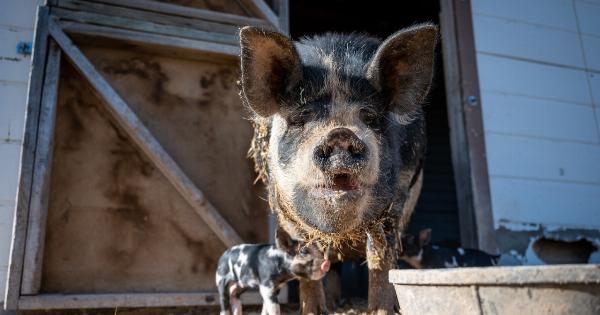Cholesterol is often considered bad for our health as it is associated with heart diseases and strokes. In fact, it is an essential substance used by the body to build cells, create hormones, and aid digestion.
The cholesterol levels in our body are the result of our diet, lifestyle choices, and genetics. Certain changes in our diet can significantly affect our cholesterol levels, and one such change can be enough to spike them up. In this article, we will discuss how one dietary change can spike cholesterol levels and what precautions we can take.
Cholesterol and its Types
To understand the impact of dietary changes on cholesterol levels, let’s first understand what cholesterol is and its types. Cholesterol is a waxy, fatty substance produced by the liver and present in certain foods.
There are two types of cholesterol, namely LDL (Low-density lipoprotein) and HDL (High-density lipoprotein).
LDL cholesterol is called “bad cholesterol” as it can build up in the walls of arteries and cause blockages, leading to heart diseases and strokes.
On the other hand, HDL cholesterol is known as “good cholesterol” as it carries cholesterol from other parts of the body to the liver, where it is broken down and excreted.
The Impact of Dietary Changes on Cholesterol Levels
Dietary changes can significantly affect our cholesterol levels. Different foods have different impacts on our cholesterol levels, and some can even spike them up in a short period.
However, it is essential to note that dietary changes cannot reverse the genetic factors responsible for high cholesterol levels.
One dietary change that can spike cholesterol levels is a sudden increase in the consumption of high-fat foods.
High-fat foods, especially those containing trans fats and saturated fats, increase LDL cholesterol levels in the body, leading to the accumulation of cholesterol in arteries. These foods include processed and fried foods, red meat, butter, cheese, and ice cream.
As per the American Heart Association, adults should limit their saturated fat intake to less than 6% of their daily calorie intake.
In a 2000 calorie diet, that would mean consuming no more than 120 calories from saturated fats per day, which is equivalent to 13 grams of saturated fat. Moreover, it is essential to replace the unhealthy fats in our diet with healthier fats, such as monounsaturated fats and polyunsaturated fats, which include olive oil, nuts, seeds, and fish oils.
Precautions to Take
Knowing the foods that can spike cholesterol levels, it is essential to take precautions to avoid such an occurrence.
One of the best ways is to switch to a heart-healthy diet, which includes fruits, vegetables, whole grains, lean proteins, and healthy fats. A heart-healthy diet can lower LDL cholesterol levels and increase HDL cholesterol levels, reducing the risk of heart diseases and strokes.
Another precaution is to limit the consumption of unhealthy fats, especially trans fats and saturated fats, by choosing healthier options.
For example, replacing butter with olive oil, choosing lean proteins such as chicken and fish over red meat, and snacking on nuts instead of chips.
It is also essential to stay physically active and maintain a healthy weight. Regular exercise can increase HDL cholesterol levels and lower LDL cholesterol levels, reducing the risk of heart diseases and strokes.
Moreover, maintaining a healthy weight can help regulate cholesterol levels and reduce the risk of other health problems.
Conclusion
Cholesterol is an essential substance used by the body to build cells, create hormones, and aid digestion. However, elevated levels of cholesterol can lead to heart diseases and strokes.
One dietary change that can spike cholesterol levels is the sudden increase in the consumption of high-fat foods, especially those containing trans fats and saturated fats. It is essential to take precautions to avoid such an occurrence, such as switching to a heart-healthy diet, limiting the consumption of unhealthy fats, staying physically active, and maintaining a healthy weight.































